Thanasis Cheliotis, Vice President of the Hellenic Association for the Protection of Animals, talks about the horses and donkeys that work non-stop throughout Greece in the summer.
They pull wagons, go up and down stairs with loads and riders on their backs, and are used to work in the forest. At the same time, however, the legislation protecting them is incomplete, and the picture we have of their numbers and working conditions is virtually non-existent.
The reason is the “working” (as they are called) horses and donkeys, which in our country can be seen in many tourist places – in the Cyclades and Argosaronicos Islands (Santorini, Hydra, Aegina, etc.), as well as in the countryside, performing work for their owners.
But what do we know about the conditions in which they live and work? A few days ago, a picture of a horse pulling a wagon in Manhattan caused sadness and disgust, which, exhausted from the heat, collapsed in the middle of the street. In the rest of the world, the image of hard work in extreme heat can be seen in Santorini with its famous donkeys, which often draw complaints from animal lovers.
In August 2021, a circular entitled “Protection of working horses and animals transported during summer holidays in extreme weather conditions” was issued, which stated that animals should not work from 13.00 to 17.00 at a temperature of 35 ° C and above in the shade.
“But who controls it?” asks Thanasis Cheliotis, vice-president of the Hellenic Society for the Protection of Horses (Ε.Σ.Π.Ι), and explains: “First of all, we are talking about a circular, not a law. Despite the circular, on Santorini donkeys continue to work in extreme heat or remain tied without shade.
In reality, there is no Greek legislation on working horses, since it is based on the outdated Law 1197 of 1981, which is mostly vague about the basic needs of animals – food, water, shade. And the problem is not only in working on the islands, where animals are engaged in cargo transportation. Donkeys and mules are also heavily employed in Northern Greece, where loggers cannot reach the forests with machinery and use them for work.”
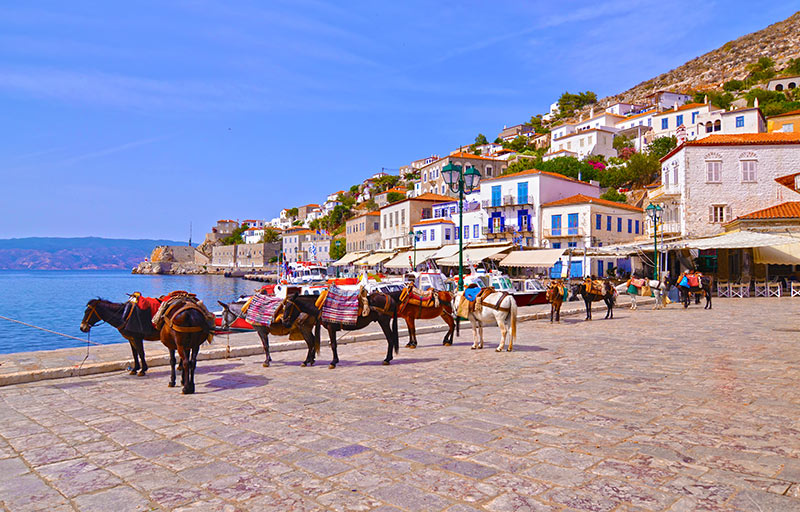
Missing registration and database
According to Heliotis, the main obstacle to the control of working horses is the lack of a database. “Their registration is something that has not yet been done by the Ministry of Rural Development and Food,” says Vice President Ε.Σ.Π.Ι, adding: “We don’t know how many horses and donkeys are working, we just know that every summer… the ball falls on what’s going on in that sector.
Records exist only at the local level. For example, in Santorini we know that there are 35 guides on the steps, which can have a maximum of 7 animals each. The hippodrome also keeps a record of the number of horses. As an organization that has looked after 180 horses since 2006, we know where they are. But we are talking about fragmentary records.
Their registration falls under the European regulation, which should have been established in our country many years ago. In April last year, the Ministry of Agriculture and Forestry issued a circular, according to which the registration of these animals should begin next October in order to be able to create a database – a register of working horses, where each animal will have its own certified health book. “So far, no one obliges a private person to have a medical book for his horse,” says Mr. Heliotis, adding: “This means that if such an animal is hit, for example, on the road, no one is responsible.”
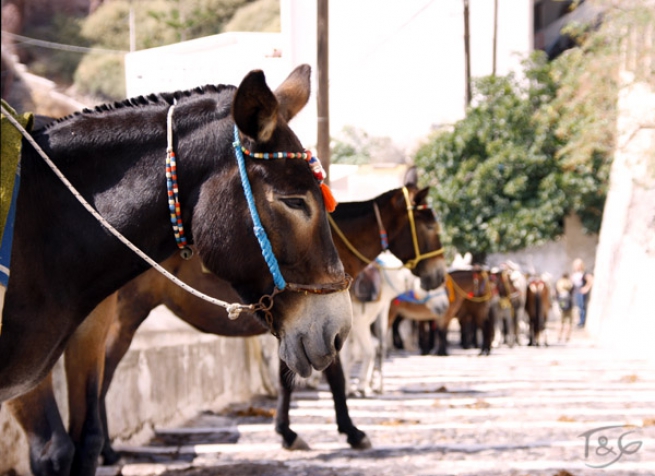
At the same time, Heliotis emphasizes that when the time comes to create a register, the responsibility for stray horses will lie with the regions, and as for individuals, they will have to register them in their region. “Consider that undeclared animals mean zero tax burden,” Heliotis emphasizes and explains, “In the sales market, animals are currently sold for cash, and this black money moves in such a way that it is impossible to find an end. Therefore, it is necessary to ensure mobilization and control so that the plan registry has been implemented and has not failed.”
Accusations of overwork and difficult rescue
The vice president of Ε.Σ.Π.Ι told us that most complaints about poor working and living conditions for animals come in during the summer months. Many complaints mention that donkeys and horses carry too much weight, or that they work with open wounds that have not been cared for.
“The point is not that incidents do not occur in winter, it’s just that in the winter months they are not so noticeable, as they are only before our eyes, and in summer tourists see it,” Cheliotis notes and continues, “Unfortunately, now we are also registering a large number of homeless animals For economic reasons some people leave them to graze outside and they run away because they are trying to find more food In many cases we find them on the streets as they have become disoriented One of the areas where we usually see abandoned horses, is located in Aspropyrgos. We also see abandoned former racehorses, which are now considered … unusable. “
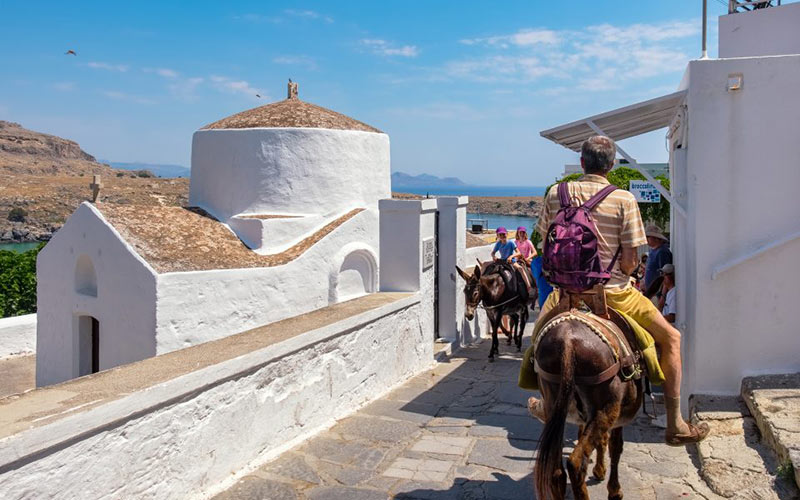
“There are whole herds of stray donkeys in the countryside, the owners of which received subsidies for them, and then immediately abandoned them.” However, according to Mr. Cheliotis, volunteer organizations cannot solve the problem in full due to insufficient staff and limited financial resources.
“We must deal with emergencies without fail. Animals with large wounds or grazing animals, that is, with bound legs, come first,” he notes and continues, “In other cases, we try to cooperate with local police stations, while a positive result is determined by whether the site manager is cooperative or not We try to get the horses to recover and then put them up for adoption Until they are adopted we cannot bring new ones into our barn We currently house 20 animals and unfortunately they’ve been full for a long time, and there’s no such structure in the state.
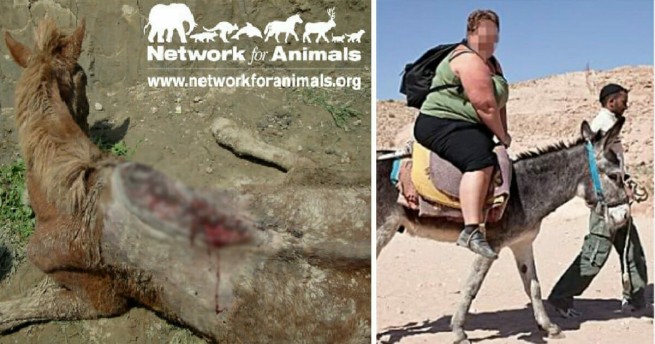
In general, this problem is not purely Greek, it exists in many countries. What we need in Greece is special legislation for working horses, donkeys and mules, since they are a completely different category than productive animals (sheep, cows, etc.). We are talking about the animals that helped us rebuild the country after the war, they have helped us so much for decades that we simply have to take care of them now.





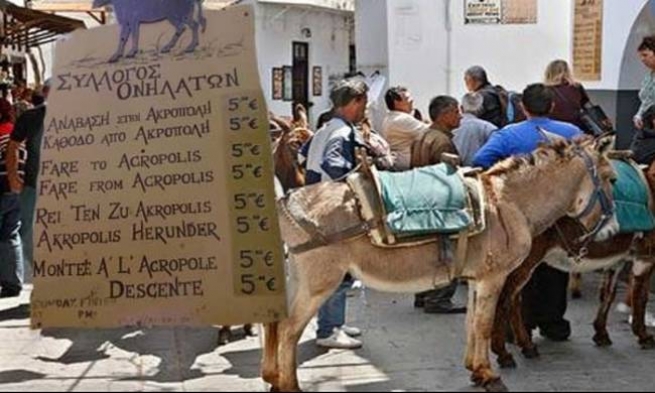

More Stories
D. Sariyannis: “We expect African dust in mid-May”
Dust from the Sahara: first results of analysis of chemical components
Lyrid meteor shower, make a wish on a shooting star